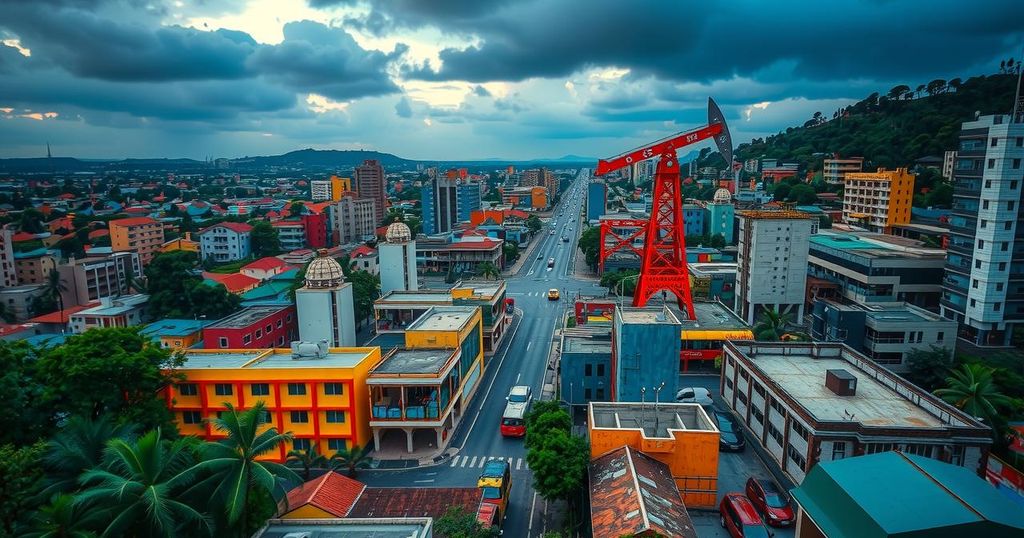Political Evolution and Independence of Equatorial Guinea

The independence of Equatorial Guinea was formalized on October 12, 1968, following a constitutional referendum. The initial president, Francisco Macías Nguema, established a repressive regime that led to many human rights violations until his overthrow in 1979 by his nephew, Teodoro Obiang Nguema Mbasogo. Despite constitutional reforms and multiparty promises, elections under Obiang have been marked by widespread accusations of fraud and oppression. The country continues to navigate a complex political landscape shaped by oil wealth and authoritarian governance, with recent elections raising further questions about democratic integrity.
The journey towards independence for Equatorial Guinea began in late 1967, culminating with the suspension of Spanish autonomous political control in early 1968. Following the Organization of African Unity’s approval, a national referendum on the proposed constitution was held, resulting in overwhelming support on August 11, 1968. The parliamentary elections that followed in September facilitated the formal declaration of independence on October 12, 1968. The first president, Francisco Macías Nguema, assumed the role in 1971 and quickly moved to solidify his absolute power, enacting a constitution that designated him president for life by 1972. His regime was marked by repression, mass arrests, and human rights abuses that prompted significant international outcry and led to the exodus of many Equatoguineans. In 1979, Nguema was overthrown by his nephew, Teodoro Obiang Nguema Mbasogo, who then established a Supreme Military Council with civilians included by 1981. Although a new constitution in 1982 and subsequent elections in 1983 suggested a less authoritarian approach, Obiang’s government has continuously faced accusations of electoral fraud and rights violations. The oil wealth that surged in the late 20th century has often been linked to corrupt practices within Obiang’s administration. Throughout the 1990s and beyond, elections were marred by non-competitive practices, although a 1991 constitution shifted towards multiparty governance. Major constitutional reforms were enacted via a controversial referendum in 2011, raising questions about Obiang’s intent to maintain power amid allegations of electoral malfeasance. In 2015, Equatorial Guinea unexpectedly hosted the Africa Cup of Nations football tournament under challenging circumstances. The 2016 presidential election again saw Obiang secured a staggering 93.7 percent of the vote amidst reported human rights abuses. Despite calling for national dialogue, opposition figures have dismissed such efforts as insincere and largely ineffectual, as shown in the 2018 opposition boycott. However, in 2022, the abolition of the death penalty was a notable legislative advancement. The most recent presidential elections occurred on November 20, 2022, wherein President Obiang was re-elected with 94.9 percent of the ballots. Yet, the integrity of this election has been widely disputed, shadowed by allegations of irregularities and intimidation.
Equatorial Guinea, located on the west coast of Central Africa, has undergone a tumultuous political history marked by colonialism and dictatorship. It gained independence from Spain in 1968, but the years following independence were characterized by authoritarian rule. Francisco Macías Nguema’s presidency was particularly notorious for its repressive measures and human rights violations. His nephew, Teodoro Obiang Nguema Mbasogo, has been in power since 1979, presiding over a regime that despite constitutional changes and claims of democratization, maintains a tight grip on power, often at the expense of civil liberties. The rich oil reserves discovered in the late 20th century have significantly influenced the country’s political landscape, intertwining economic wealth with governance challenges and corruption allegations.
In conclusion, the political history of Equatorial Guinea highlights a struggle for genuine independence and democratic governance since 1968. The overwhelming dominance of President Teodoro Obiang Nguema Mbasogo reflects systemic issues of electoral manipulation and human rights abuses that have persisted throughout his lengthy reign. Although constitutional changes and reforms have occurred, they often appear to serve more as tools for maintaining power rather than fostering true political pluralism. The recent elections of 2022 reaffirm concerns about the legitimacy of the electoral process in Equatorial Guinea, leaving the nation’s future uncertain under continued authoritarian rule.
Original Source: www.britannica.com







